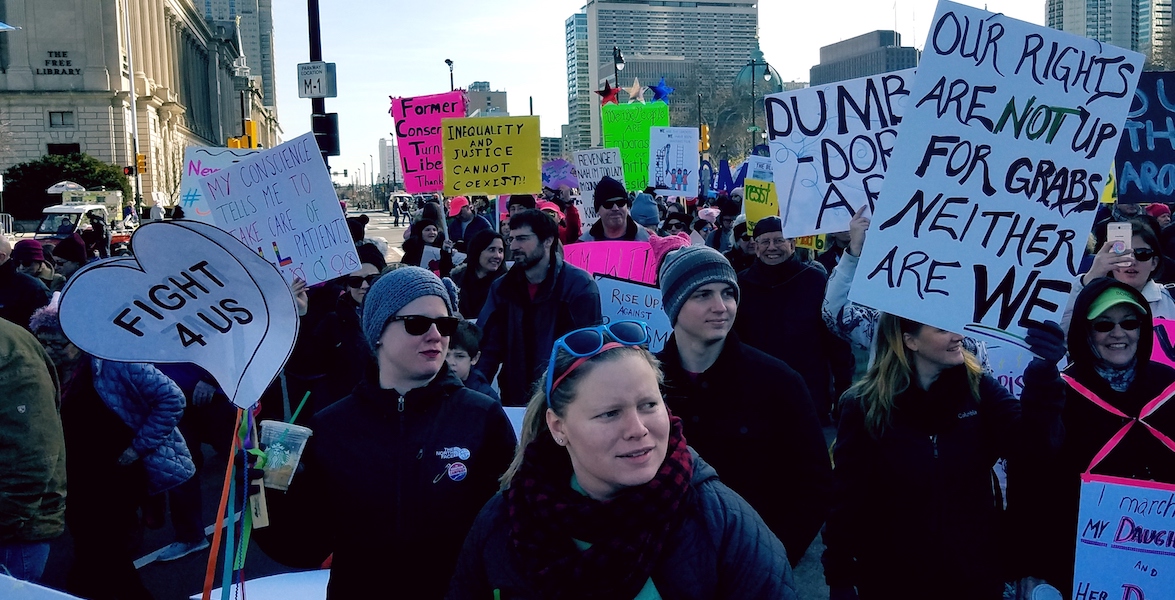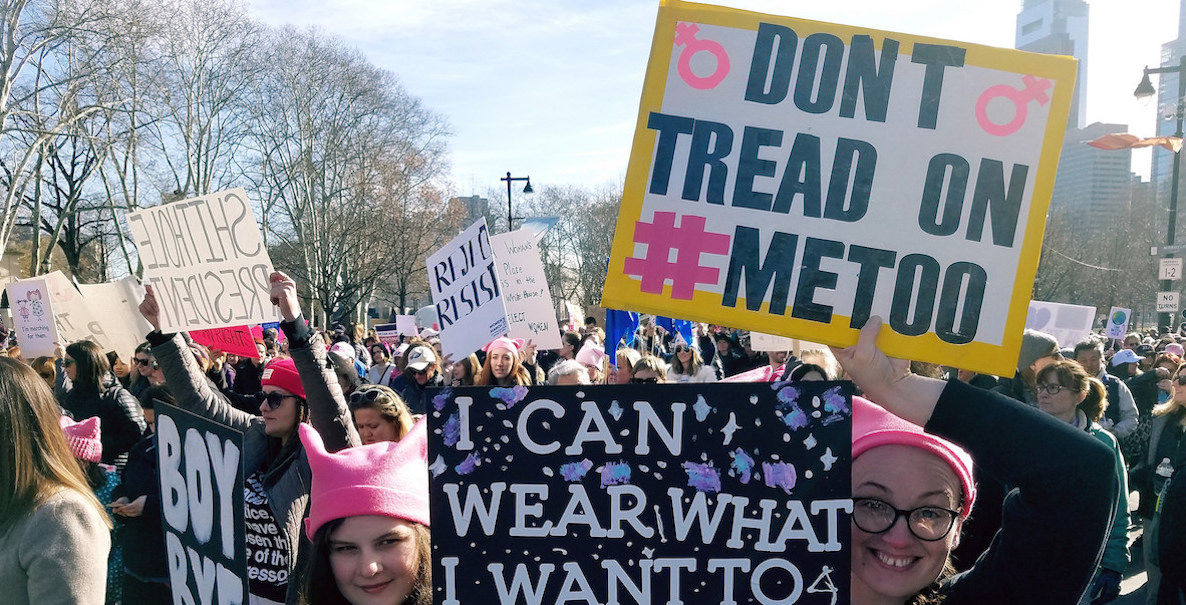It’s a throwaway line buried on two separate occasions in City Controller Rebecca Rhynhart’s recent report on the City’s sexual harassment policies that speaks volumes about the issue as a whole. In a section on the investigatory process of the Mayor’s Office of Labor Relations, the audit alludes to the harassment claims made—and subsequently substantiated—against Sheriff Jewell Williams.

Prefer the audio version of this story? Listen to this article on CitizenCast below:

As part of city policy, the report notes, the results of a harassment investigation go to the head of the department in which the employees work—even when that department head, like Sheriff Williams, is the accused harasser himself:
When substantiated complaints are made against department heads, specifically elected officials, as was found to have occurred earlier this year in the Sheriff’s Office, they are still the recipient of the final case file and are responsible for taking the ‘appropriate measures’ against themselves.
![]()
This is absurd, of course. But it is also emblematic of the levels of dysfunction when it comes to sexual harassment among our elected officials in the city and state. Both Rhynhart and Mayor Kenney have called on Williams, sheriff since 2012, to resign. He has denied the accusations and refused to step down. And really, no one can make him: As an elected official, Williams answers to no one but the voters and taxpayers who pay his salary. He’s not up for reelection until next year—by which point, perhaps, he’s hoping we’ll all forget.
Just before Rhynhart released her report, The Citizen ran an explainer on the state of #MeToo legislation in Harrisburg. Short version: Our esteemed state legislators have refused to bring to a vote more than a dozen bills that would strengthen workplace protections for women and men across Pennsylvania, largely (it seems) for political reasons. Locally, though, Philly has the strongest laws on the books to address sexual harassment for people who work in the city.
But as Rhynhart points out, strong laws aren’t enough to prevent workers from facing sexual harassment, ranging from degrading comments to actual assault, when they go to the office—even, or maybe especially, when that office is city government. “The laws may be on their side, but most employees don’t want to bring a lawsuit, they just want the harassment to stop,” says Rhynhart. “There need to be protections so that employees don’t feel the need to sue.”
As an elected official, Sheriff Williams answers to no one but the voters and taxpayers who pay his salary. He’s not up for reelection until next year—by which point, perhaps, he’s hoping we’ll all forget.
Rhynhart’s report looked at 121 sexual harassment complaints filed by city workers from July 2012 to April 2018, and at others it collected on a hotline the Controller’s office set up early this year. It found, among other damning things, that there was no overarching policy so that each each city department handled complaints differently; that 70 percent of city employees responsible for personnel issues had not received sexual harassment training; that the majority of callers into the phone line thought they had filed official reports, but the city had no record of them; and that in many cases lower-level employees received harsher discipline than supervisors for the same offense—even though it should be the opposite.
![]()
All of this has put women and men who work for the city in precarious, sometimes dangerous situations. It has also led to at least $2.2 million in payouts funded by taxpayers. ”If a better process was in place from the city, then employees would be better protected, would be safer, and the end result would be that taxpayers aren’t on the hook for behavior that could be dealt with in a better manner,” Rhynhart says.
The audit was the first review of the city’s sexual harassment policies since they were instituted in the mid-80s, and comes on the heels of a few ugly, well-publicized local incidents: The allegations against Sheriff Williams, which first came to light last year; a pattern of sexual harassment from former Philadelphia Parking Authority Director Vince Fenerty that, until 2016, had been brushed under the rug by the PPA board; and the $1.25 million payout last December to a former police officer to settle a case of harassment, assault and retaliation from her supervisor (who has since been promoted).
It also comes amidst a cultural shift on the issue of sexual harassment that has been slow to take hold in the halls of government, at least in most places. The Controller’s office looked to the federal Environmental Protection Agency, which Rhynhart says is considered to have the best standards for preventing and addressing harassment in the workplace, as a way to gauge how Philly fares. But they didn’t find a lot of cities that had figured this out any better than we have.
Philadelphia has the opportunity to be a national leader on protecting its workers. And, indeed, Mayor Kenney has taken steps in the right direction.
That gives Philadelphia the opportunity to be a national leader on protecting its workers—something voters pushed forward in November, when they voted to change the City Charter to mandate sexual harassment training every three years for city employees. And, indeed, Mayor Kenney has taken additional steps in the right direction. At the same time as Rhynhart released the audit, Kenney issued several changes to tighten up the city’s sexual harassment policies, including better training and a better reporting system.
![]()
And Kenney has said he will consider all of the recommendations from the report—including the Controller’s insistence that the city set up one centralized office to investigate every harassment complaint. That will require significantly beefing up the Office of Labor Relations, which currently has just three investigators, something Rhynhart hopes City Council will take up when it reconvenes in the fall.
That still leaves on the table the question of what to do about elected officials, like Sheriff Williams, whose alleged harassment is a stain on the city and those who work for it. Should the substantiated report about his behavior be released to his employers, i.e. the voters of Philadelphia? Would that lead to a greater public outcry to force him to resign, as this Philly 3.0 petition has called for? Might that, as the city has said, prevent other victims from coming forward?
It’s hard to say, really. But one thing is clear: We can’t do nothing. As Rhynhart says about the audit as a whole: “Now that we’ve put this out there, we have an obligation to fix it.”







